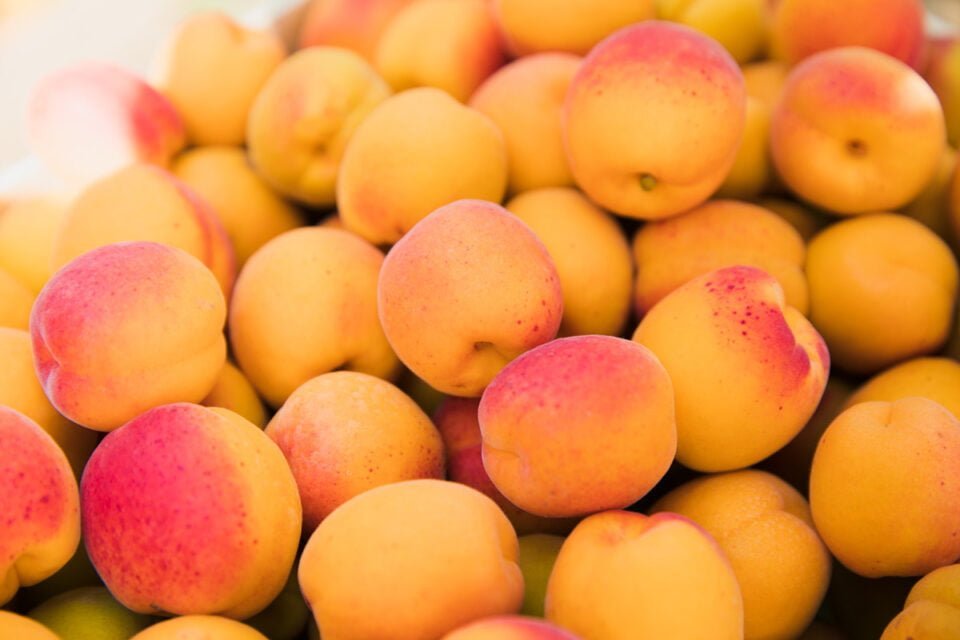According to EastFruit monitoring, wholesale prices for apricots in Moldova decreased from 35-40 MDL/kg ($1.82-2.0/kg) to 15-18 MDL/kg ($0.78-0.93/kg) over the last week of June and the first week of July. This week, apricot prices continue to decline. Fruit market participants claim that even for high-quality goods – large fruits without mechanical damage, sunburn and disease, wholesale buyers are ready to pay no more than 12-13 MDL/kg ($0.62-0.67/kg). This is much lower than last year’s July price for apricots – 18-20 MDL/kg.
Experts of agricultural producers’ organizations claim that the main reason for the decline in prices in the first half of July is the rotation of varieties – during this period, early-ripening varieties are replaced by mid-ripening apricot varieties. The market is currently dominated by offers of apricot varieties “Shalakh” and “Nadezhda”. Both varieties have an exquisite taste, but they are very sensitive to the quality and timing of harvesting – when ripened, they must be removed from the trees within a few days and need emergency cooling. Slightly overripe fruits quickly lose density, keeping quality and transportability. This greatly reduces the “commercial period” and increases the risk of losses for wholesale buyers.
However, if the agricultural producer applied calcium preparations in advance to increase fruit density, and built harvesting and post-harvest logistics right, apricots of the mentioned varieties gain storage and export potential without reducing their attractiveness for the consumer. This season, some horticultural farms have had a successful experience in exporting Nadezhda apricots to Germany.
Another reason for the decline in apricot prices, according to experts, is that the Nadezhda variety produced a lot of fruits this year. As a result, the orchards in some farms are overloaded with apricots. The fruits are of various sizes, and some farmers do not have sorting lines or the opportunity to pay for manual sorting. For this reason, a large part of the harvest is sold at a deliberately reduced price on the domestic “fresh market” or sent for processing. However, many small growers consider the last option not bad – canning factories pay on average 7 MDL/kg ($0.36/kg) for industrial apricots.
Next week, the harvesting of apricot varieties “Kyoto”, “Big Red” and, a little later, “Lady Cat”, with a high export potential will begin in the central and northern regions of the country. However, the issue is that their supply to Ukraine, as well as to the Russian market, is problematic this year. Meanwhile, in previous years, these countries accounted for at least 50-60% of the total export of Moldovan apricots.
The use of the site materials is free if there is a direct and open for search engines hyperlink to a specific publication of the East-Fruit.com website.




